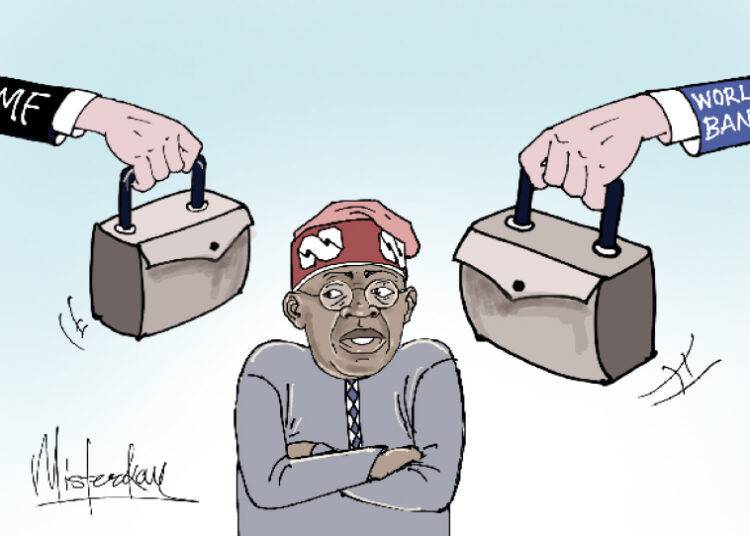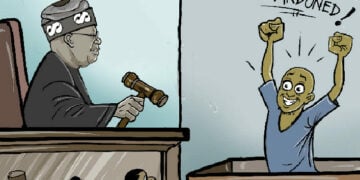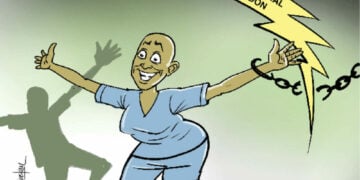Earlier this week, global leaders and economic experts gathered in Washington DC, the United States capital, for the 2024 annual International Monetary Fund (IMF) and the World Bank Group meetings. As always, one recurring theme was the call from third-world countries for debt relief. Other primes in the meetings’ agenda included global trade, climate change, public health, and other developmental challenges, particularly in developing economies.
However, it is clear that these developing nations, including Nigeria, are looking for solutions in the wrong place. Seeking help from the same entities responsible for creating our problems is counterproductive. The World Bank and IMF are major contributors to the challenges we face today. To believe they can solve these problems is simply self-deception.
Collective Enemies
Many Nigerians now recognize that the IMF and World Bank are, in fact, the major cause of the problem. These institutions’ suggestion that the nation suspends petroleum and electricity subsidies and float the naira to allow market forces to determine its value, which the government stupidly accepted hook, line, and sinker, is the reason the nation is currently battling 70% headline inflation and 40.20% food inflation.
Recently, the World Bank’s September 2024 report revealed that 129 million Nigerians live in poverty and cannot meet their basic human needs—129 million out of the country’s 200 million citizens! Even more alarming is the fact that 29 million Nigerians have fallen into poverty within just one year under the current administration, which is ironically termed “Renewed Hope” but fittingly referred to as “Renewed Shege” by many suffering Nigerians.
The government’s policies, largely imposed on it by the IMF and the World Bank, have impoverished the nation and its citizens. Therefore, it is not surprising hearing the World Bank insists that Nigeria continue its reforms, arguing that reversing them is not an option. How can it be said that reversing a policy that has caused over 100 million people to fall into poverty is off the table?
The World Bank has consistently shown little concern for the plight of the poor in Nigeria, supporting a system that benefits the few at the expense of the many instead. It advised the Nigerian government to suspend subsidies on electricity and fuel, as a result of which most poor and low-income earning Nigerians now pay high for power supply. The fuel cost per litre has been on an upward trajectory, temporarily settling at N1,200 per litre.
Sever Ties
In his 2004 book Confessions of an Economic Hit Man, John Perkins exposed the manipulative practices of the IMF and World Bank. It’s disheartening that, two decades later, Africa and other developing nations remain tied to these institutions. Perkins’ autobiography, which is not a work of fiction, details how large corporations and multilateral financial institutions exploit resources and governments for the benefit of the United States and its elite. The book reveals how these so-called “economic hitmen”, for which Perkins admitted he was one, work to entangle countries in debt traps, making them bound to creditors and vulnerable to external demands like military bases or access to natural resources.
Perkins wrote this book to alert people to the exploitation driven by global capitalism, with the IMF and World Bank playing pivotal roles. He believes that once enough people understood how these systems operate, they would no longer tolerate them. He encouraged a reassessment of how we interact with a world where a few thrive while the majority suffer from poverty, pollution, and violence. Admitting the problem, he argued, is the first step toward solving it.
His insights are highly relevant to Nigeria. Since May 2023, the Bola Ahmed Tinubu administration has borrowed approximately $6.45 billion from the World Bank. In the last five years, the Bank approved at least 36 loans for Nigeria, totalling $24.088 billion. Most of these loans are mismanaged by public officials and their elite friends, who are the main beneficiaries. Nigeria will not be able to repay these loans anytime soon, but the Bank remains unconcerned. It continues to act as an instrument of subservience, keeping us dependent on multilateral institutions and their backers.
The IMF and World Bank lure our leaders with ‘incentives’ while impoverishing the entire continent. As long as our leaders are guaranteed a steady flow of these incentives and their positions are secured, they don’t give a hoot about what happens to the entire country, even if their countries descend into chaos. For anyone who wonders why we remain tied to the IMF and World Bank, herein lies the answer.
IMF and the World Bank are poisonous to our collective existence as a people. It is high time Africans and citizens of other developing nations collectively rejected their government’s continued reliance on these institutions. However, the path to achieving this is still unclear because their puppets in leadership, who are the major beneficiaries of this relationship, will frustrate every effort to make that happen.
A Catch-22
Regrettably, it seems almost impossible for Nigeria and other African nations to sever ties with these institutions. Every year, we revisit discussions on how to tackle our overwhelming socio-economic challenges, and invariably, the conversation shifts toward seeking support from multilateral institutions like the IMF and World Bank.
When a country borrows from the IMF, it is compelled to adjust its economic policies under the guise of helping it overcome its financial difficulties. These adjustments, however, are designed to ensure the country can repay its loans, often leading to painful austerity measures. Policies such as subsidy withdrawals and tax increases, which are some of these conditionalities, unreasonably affect the poorest citizens, leaving a lasting negative impact.
The IMF and World Bank often push for domestic reforms, which they claim are aimed at boosting growth and mobilizing resources. However, the harsh reality is that these reforms frequently worsen the situation for already struggling citizens.
A Homegrown Solution
Nigeria and other developing countries must take the lead in addressing their development challenges instead of depending on external intervention. The focus should be on building strong institutions, tackling corruption, managing resources effectively, and investing in youth development to curb the alarming emigration of skilled workers. Leadership is key to making this happen, but whether the West, which always plays subtle roles in determining who emerges as leaders in most African countries, will allow it remains a significant question. It is clear that we don’t need IMF and the World Bank.





